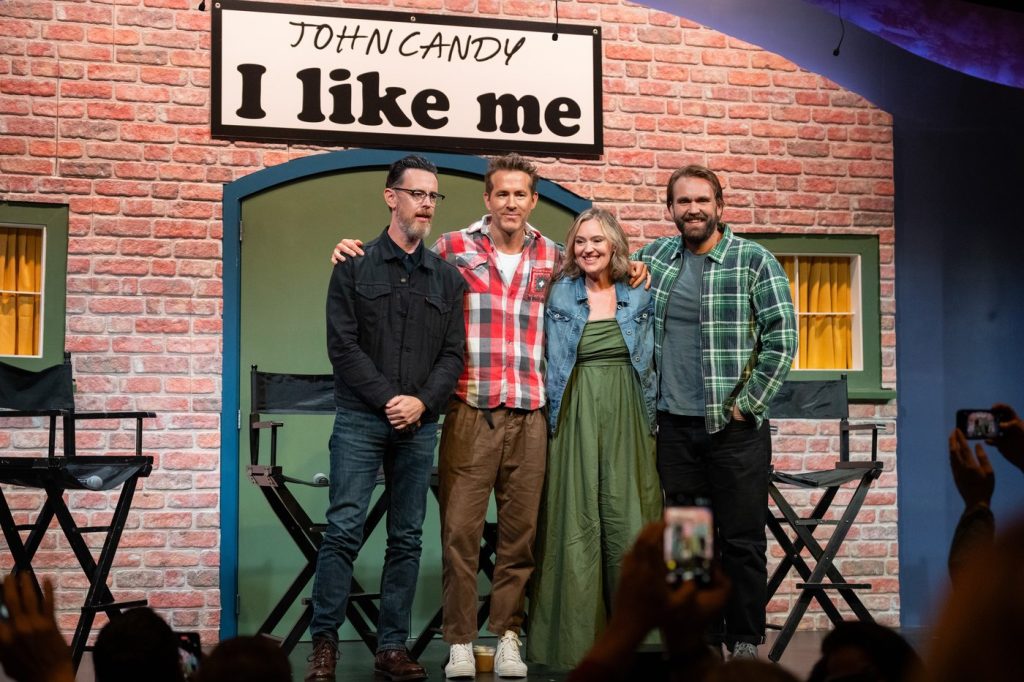TORONTO - A new documentary titled John Candy: I Like Me portrays the cherished Canadian comedian John Candy as a quintessential people-pleaser whose primary goal was to make others laugh. This trait, while common among comedians, proved to be a perilous one for Candy, as it often concealed his private struggles, including unresolved childhood trauma, anxiety, and self-esteem issues.
Ryan Reynolds, the film's producer, expressed during a media interview at the recent Toronto International Film Festival that "growing up in that industry is difficult." He pointed out that the combination of being a people-pleaser alongside mental health challenges creates a unique conflict, where individuals maintain the facade of being fine, while inwardly they are not, which can be dangerously misleading.
John Candy: I Like Me chronicles the life and untimely death of Candy, who rose from the Canadian sketch series SCTV to Hollywood fame with iconic films in the 1980s and early 1990s, such as Stripes, Splash, Uncle Buck, and Planes, Trains and Automobiles. Candy passed away in 1994 at the age of 43, leaving behind a legacy that continues to resonate with audiences.
Director Colin Hanks, seated alongside Reynolds, shared his hopes that the film would foster conversations about mental health, noting that therapy has been a "lifesaver" for him personally. Describing Candy’s life, Hanks revealed facts that many may not know, such as Candy losing his father at a young age and the impact those early experiences had on him.
In the film, Candy’s friends, including Bill Murray, Catherine O'Hara, Tom Hanks, Dan Aykroyd, Martin Short, Macaulay Culkin, and Eugene Levy, share memories of a vibrant entertainer known for his love of food, drink, and generosity. However, they also shed light on Candy’s struggles with anxiety, particularly concerning jokes about his size, and the grief he experienced from the sudden death of his father just prior to his fifth birthday.
John Candy's adult children, Jennifer and Christopher, also make appearances in the documentary, expressing their desire to honor their father's memory and promote open discussions about mental health and grief. Christopher emphasized the importance of addressing loss, noting that many people face similar experiences. His sister, Jennifer Candy-Sullivan, shared how therapy has aided their family in discussing their father's struggles and the valuable lessons learned from their experiences. She continues to cope with her grief over his abrupt death on a film set in Mexico, seeing the documentary as part of her healing process.
Jennifer reflected on the overwhelming support the family received from Candy's close-knit circle of friends following his death, recalling the star-studded funerals held in Brentwood, California, and Toronto. She described the chaotic yet comforting atmosphere of family and friends gathering to support their mother and share in their grief.
Reynolds, who has garnered significant fame himself, observed that the most profound documentaries encourage self-reflection. He shared his admiration for Candy and expressed that he learned about himself while exploring Candy's life in the film. Reynolds likened Candy's career to a race against time, suggesting that he felt a pressing need to create a secure future for his family. He poignantly noted that in the end, all Candy truly wanted was to return home from his final film shoot, a wish that was sadly unfulfilled.
John Candy: I Like Me is set to premiere on a Friday, and the film aims not only to celebrate John Candy's remarkable legacy but also to invite dialogues surrounding mental health and the personal struggles that even those in the limelight face.










